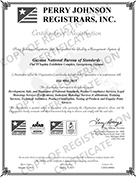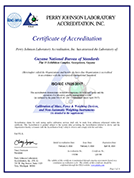Cassava has long been associated with Guyana’s Indigenous people as it remains a staple food in Amerindian communities where the crop is predominantly grown. One of the most common dishes is Cassava Bread made from bitter cassava; it is made using recipes and methods passed down for generations, which is in keeping with the theme for this year’s Amerindian Heritage Month: “Maintaining our traditional integrity, celebrating our cultural identity.”
Cassava Bread is called Eki, Beiju, Baad, Alehpah and Kali in the various indigenous languages and is now being sold in markets and supermarkets across the country. However, with the implementation of a CARICOM Standard, this local product can be sold in other countries in the Region.
The Guyana National Bureau of Standards (GNBS) adopted the CARICOM Regional Standard –“Specification for Cassava bread”(CRS 19) – in 2010. The Standard specifies the requirements for Cassava Bread and its related products to ensure adequate and hygienic production, and acceptable product quality and safety for human consumption.
Specific requirements of the standard include that cassava bread must be crisp and uniformed in texture and appearance, free from any odor, fungus or molds, traces of insects or rodent infestation, or any rancid flavours. As the commodity is made from bitter cassava, the standard also specifies that it must be free from any bitter or unpleasant taste.
The Standard also covers packaging and hygiene during production and sampling. Hygienic conditions include requirements for the premises and equipment to be maintained, cleaned and sanitized to ensure contamination is minimized. Persons preparing the product are also required to meet all national health requirements to handle food products.
As it relates to packaging, the standard notes that packages should be new, shall not impart any toxic substance, undesirable odour or flavour to the product as this can alter the desired taste or cause illness. In addition, the standard requires that packaging protects the product from breaking.
Packages must also be properly labelled in accordance with the latest edition of the CARICOM labelling for Pre-packaged Foods and or the Codex General Standard for Labelling of Pre-packaged Foods. Labelling must include a batch or lot number in clear or in code, together with an expiry date in the form of “Best before” or “Use by” which indicates the last date by which the manufacturer can be sure that the product will be acceptable. Additionally, labels should have full nutritional information, and storage instructions, which help to avoid premature spoilage.
Entrepreneurs who are in the business of making cassava bread and other interested persons are encouraged to purchase a copy of the standard at an affordable cost from the GNBS. The standard will help you to improve Cassava Bread made for sale locally or in countries within the CARICOM Region. The Bureau also offers consultancy and training to assist with the implementation of the requirements of the standard, which will lead to improved product quality, overall customer satisfaction and increased sales.
For further information on this subject, contact the GNBS on telephone numbers: 219-0064 or 219-0065 or WhatsApp us on 692-4627.






